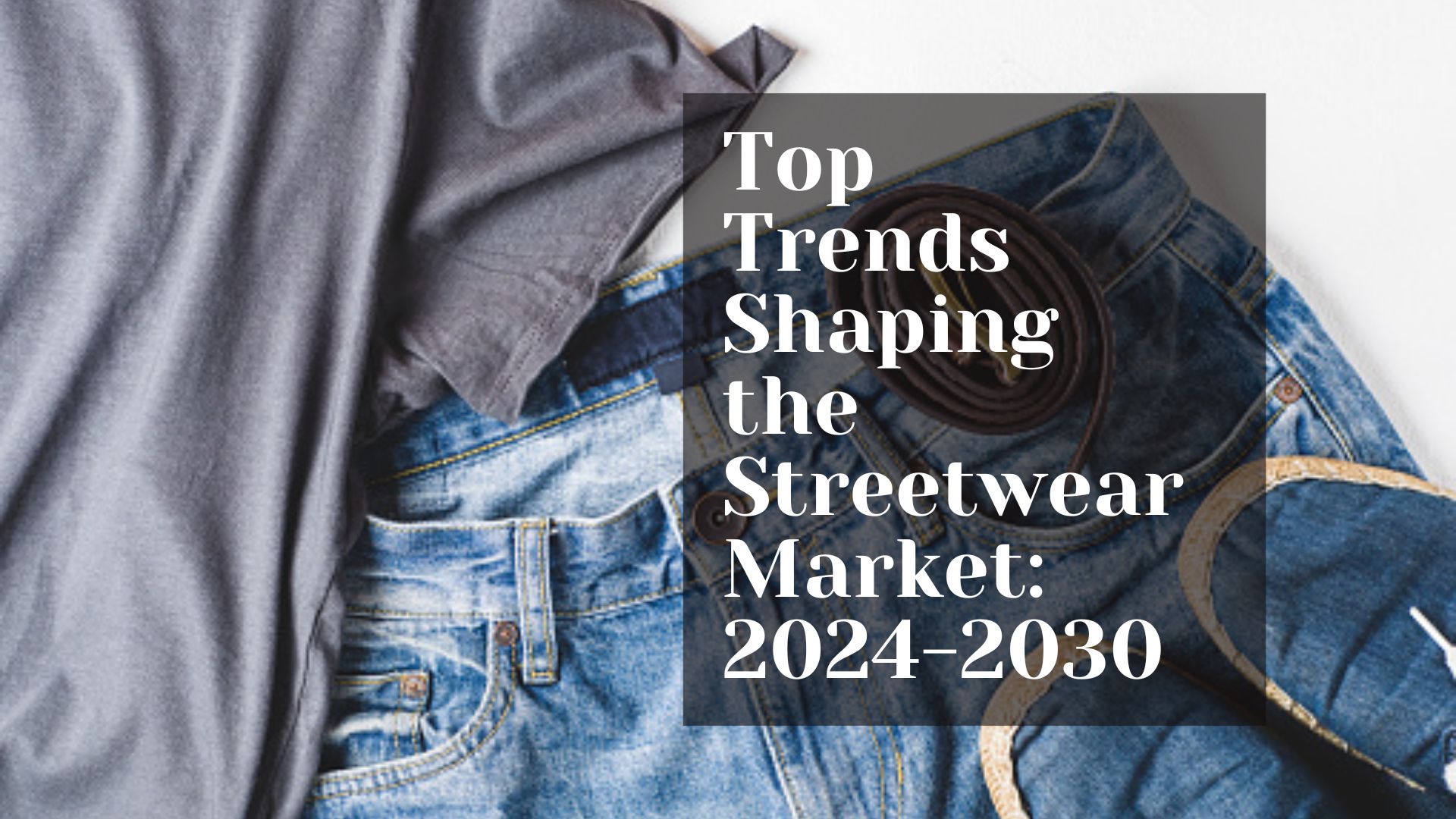"Streetwear" refers to a distinctive style of casual clothing that emerged from the Californian surf and skate culture of the late 1970s and early 1980s. Over time, it has evolved to incorporate elements from hip-hop fashion, Japanese street fashion, and modern high fashion.

The Global "Streetwear Market" size is estimated to be $192.3 Billion in 2023, and will reach $264.4 Billion by 2032, growing at a CAGR of 3.6% during the forecast period from 2024 to 2032.
Demographic Profile:
- Age: Predominantly younger individuals, typically between 15 and 30 years old, though the appeal can extend beyond this range.
- Gender: Initially male-dominated, but increasingly unisex with a growing female consumer base.
- Income Level: Varies widely; includes both high-income individuals willing to spend on limited-edition items and more budget-conscious consumers.
Psychographic Profile:
- Lifestyle: Often associated with an urban, trendy, and laid-back lifestyle. Consumers are usually involved in activities like skating, surfing, hip-hop music, and other elements of youth culture.
- Values: Streetwear consumers value individuality, authenticity, and exclusivity. They often seek to make a statement through their clothing and express their identity and affiliation with certain subcultures.
- Brand Loyalty: High level of brand loyalty, especially towards brands perceived as authentic or tied to their favorite subcultures. Hype and limited editions drive consumer behavior.
Behavioral Characteristics:
- Shopping Habits: Preference for limited edition drops, online shopping, and shopping at specialty stores. They are also influenced by social media and brand collaborations.
- Influencers: Heavily influenced by celebrities, social media personalities, and cultural icons within the streetwear and broader fashion community.
- Trends: Rapidly changing tastes with a strong interest in the latest trends, collaborations, and releases.
Geographic Factors:
- Urban Centers: Higher concentration in major cities and urban areas where streetwear culture is more prevalent.
- Global Reach: While rooted in specific local cultures (e.g., US West Coast), streetwear has a significant global presence, especially in cities like Tokyo, New York, and London.
Economic Impact:
- Market Growth: The streetwear market has seen substantial growth, driven by both high-end luxury brands entering the space and the proliferation of smaller, independent brands.
- Price Sensitivity: Although there is a willingness to spend on exclusive items, many consumers are also price-sensitive and seek value in terms of durability and brand reputation.
Grab Free Business Research Report Sample PDF/E-Book: https://www.24marketreports.com/report-sample/streetwear-2024-2030-152
Fashion Industry
- High Fashion Integration: Luxury brands such as Louis Vuitton, Gucci, and Balenciaga have incorporated streetwear into their collections. Collaborations between streetwear labels and high fashion brands, like Supreme x Louis Vuitton, have blurred the lines between street and luxury wear.
- Youth Appeal: Streetwear’s popularity among younger demographics has prompted established fashion houses to adopt more casual, urban styles to remain relevant.
- Sustainability Trends: Streetwear brands like Patagonia and Nike are leading the way in sustainable fashion by using recycled materials and promoting eco-friendly practices.
Retail Industry
- Pop-up Shops: Streetwear brands often use pop-up shops to create a sense of urgency and exclusivity, driving foot traffic and sales.
- E-commerce Growth: Online platforms like StockX and GOAT have revolutionized the resale market for limited-edition streetwear, creating a lucrative secondary market.
- Influencer Marketing: Social media influencers play a significant role in streetwear marketing, often showcasing limited releases and collaborations.
Entertainment Industry
- Music Collaborations: Many streetwear brands collaborate with musicians and artists, creating exclusive merchandise and fostering a strong cultural connection. Examples include Kanye West’s Yeezy line with Adidas and Travis Scott’s collaborations with Nike.
- Film and TV Integration: Streetwear has a notable presence in movies and TV shows, with characters often sporting iconic brands, thereby influencing viewer fashion choices.
Sports Industry
- Athleisure Trend: The blending of athletic wear and streetwear has given rise to the athleisure trend, with brands like Nike, Adidas, and Puma leading the way.
- Endorsements and Sponsorships: Streetwear brands frequently collaborate with athletes for endorsements, leveraging their influence to reach broader audiences.
Technology Industry
- Digital Fashion: The rise of virtual clothing and digital fashion shows has seen streetwear brands experimenting with digital collections, which can be worn in virtual environments and games.
- E-commerce Innovations: Streetwear brands are at the forefront of adopting new e-commerce technologies, including augmented reality (AR) try-ons and blockchain for authentication and traceability of products.
Automotive Industry
- Collaborative Designs: Automotive companies like Mercedes-Benz and Lexus have collaborated with streetwear brands to create limited-edition vehicles and merchandise, blending fashion with automotive design.
- Lifestyle Marketing: Car manufacturers use streetwear collaborations to tap into lifestyle marketing, appealing to younger, style-conscious consumers.
Food and Beverage Industry
- Brand Collaborations: Collaborations between streetwear brands and food and beverage companies, such as the limited-edition Coca-Cola x Kith collection, create unique marketing opportunities and crossover appeal.
- Themed Cafés and Restaurants: Streetwear-themed cafés and pop-up restaurants have emerged, offering branded merchandise and experiences that blend fashion with culinary culture.
Art and Design
- Street Art Influence: The close relationship between streetwear and street art has led to collaborations with graffiti artists and designers, influencing broader artistic trends and public art installations.
- Museum Exhibits: Major museums and galleries have hosted exhibitions dedicated to the history and impact of streetwear, recognizing its cultural significance.
Grab Free Business Research Report Sample PDF/E-Book: https://www.24marketreports.com/report-sample/streetwear-2024-2030-152


